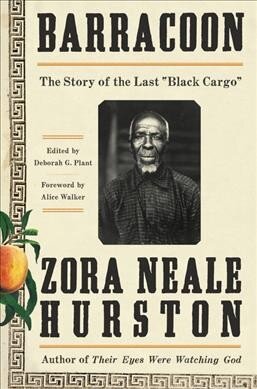African American
Related: About this forumThe Last Slave Ship Survivor - Interviewed in the 1930's
https://www.history.com/news/zora-neale-hurston-barracoon-slave-clotilda-survivorRoughly 60 years after the abolition of slavery, anthropologist Zora Neale Hurston made an incredible connection: She located the last surviving captive of the last slave ship to bring Africans to the United States.
How they did it - broke the law:
Some fake Academic "but what about-er" will probably read this on History.com and start whining - That's not fair. We need a White Town!
Mr. Lewis:

A marker for Mr. Lewis

ehrnst
(32,640 posts)dixiegrrrrl
(60,010 posts)The slave ship that brought Cujo and the others was called The Clotilde ...tho some say the name was mis-spelled and was actually the Clotilda.
Slaves were kidnapped from Ghana, and from there taken to Benin, to be sold, then were put on the Clothilda.
many sources say this ship was also burned after use.
Africa town is now part of a town called Pritchard, about 3 miles north of Mobile.
Another good book on the subject is
by Sylviane A. Diouf .
JustAnotherGen
(31,818 posts)Thanks you! ![]()
Hoyt
(54,770 posts)in little cages on the ships.
" . . . . . . they were packed aboard the slave ships, chained together in the dark, in spaces not much bigger than coffins. Some died for lack of air in the crowded, dirty cargo holds of the ships. Others jumped overboard to end their suffering. As many as a third of all the Africans shipped overseas may have died during the journey. But the trade was profitable , so merchants crammed the blacks into the holds of the slave ships like fish.
At first, the Dutch were the main slave traders. Later the English led the trade. Some Americans in New England entered the business, too. In 1637 the first American slave ship sailed from Massachusetts. Its holds were divided into racks two feet wide and six feet long, with leg irons to hold the captives in place. By 1800, somewhere between 10 million and 15 million black Africans had been brought to the Americas. In all, Africa may have lost as many as 50 million human beings to death and slavery during the centuries that we call the beginnings of modern civilization. . . . . ."
Hurston's book should be very interesting, although so sad.
JustAnotherGen
(31,818 posts)the movie Amistad twice. Never again. It's up there with Schindler's list for me.
Excellent movies - but I can't take the mother going overboard with her tiny baby in Amistad - or the little kids hiding in the sewer in Schindler's list.
annabanana
(52,791 posts)brer cat
(24,562 posts)K&R
sheshe2
(83,751 posts)That picture of Mr. Lewis, powerful.
panader0
(25,816 posts)BumRushDaShow
(128,917 posts)Well this just connected some dots for me because I remember the country's name but wasn't sure when it changed to "Benin" (it was 1975, right during my freshman year in high school). Of course learning European history in school was considered more important.
In any case, what is significant about this man's origins is how it represented the poster child of the pillaging of an African country - both its people and its practices of religion and art (culture). And moreso because that "last ship" (that was documented, but may not have been the "last" for all we know), sailed some 50 years after the trade was purportedly forbidden by law.
And it is no wonder why the country served as a template for "Wakanda" in the Black Panther film.
As a sidenote when researching some of this, apparently the artist QuestLove from the group The Roots, had an ancestor also on that "last ship" and he was on Henry Louis Gates' PBS series "Finding Your Roots" this past December -
(can't exactly point to a time mark because the 3 being featured had their stories pieced together and interspersed through the entire episode).
kwassa
(23,340 posts)who had been enslaved in Africa. Questlove was blown away.
Skinner
(63,645 posts)Barracoon
The Story of the Last "Black Cargo"
by Zora Neale Hurston
https://www.harpercollins.com/9780062748201/barracoon

JustAnotherGen
(31,818 posts)That's exactly how I heard of this man. . . Waiting for my book to arrive!
Behind the Aegis
(53,956 posts)It didn't get too many responses, but here it is (same story) ... link.
This is an important part of history which is getting white-washed, no pun intended. Unlike recent horrific events of a massive scale, there simply aren't the same first-person narratives when it comes to slavery, at least not in volume and not in this type of media format.